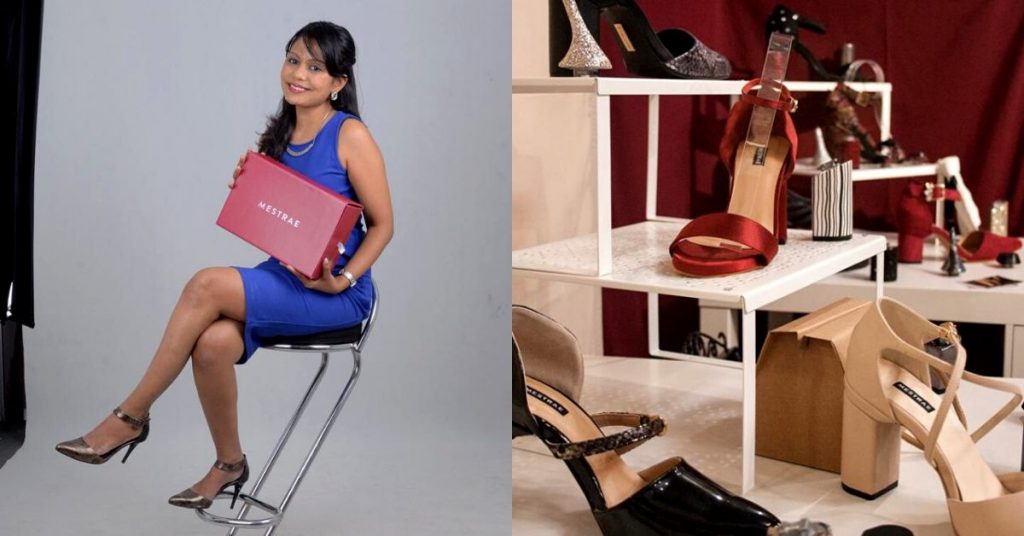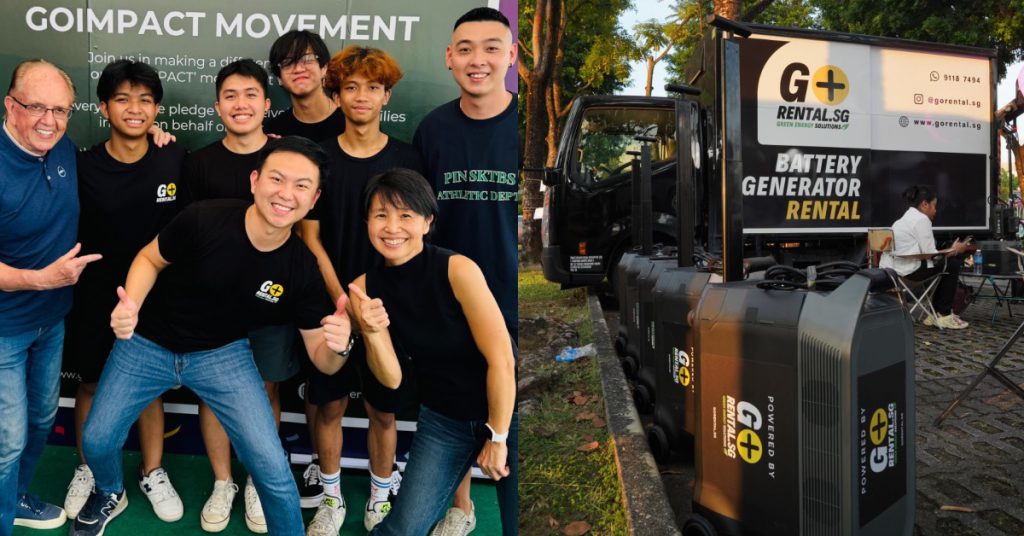Ask a woman what she thinks of heels and she’ll probably say that she either loves, hates, or has a love-hate relationship with them.
Some of us are the latter, loving how they make us look but hating how they kill our feet by the end of the day, or sometimes, within mere hours. This was what Pam had been hearing from her friends for years.
And one day in 2015, when she was on the train, running late to her job interview, she had an epiphany.
She’d had to run in heels to catch her train, which had her wondering, “Wouldn’t this have been easier in flats?”
That same evening, she conceptualised Mestrae Interchangeable High Heels, or Mestrae.
Essentially, they’re like 2-in-1 shoes where you can switch the heels to flats and vice versa in a minute or two, without even taking off your shoe.
Engineering The Ideal Shoe
Pam has an engineering background, with a degree in microwave engineering.
Upon graduation, she joined Keysight (originally founded as Hewlett-Packard). There, she got work exposure from both Malaysia and the US.

After leaving the corporate world, she paved her own path as an engineering service provider (and therefore an entrepreneur).
“However, the painful truth of switching from an engineer to running your own business is that you really don’t have any business knowledge,” Pam told us.
So, she pivoted when she had the idea of interchangeable heels, and began experimenting on her house porch.
She also did a market study to understand if there was a need for such a product, to which 90% of the 1,000 women she spoke to responded ‘yes’.
Despite the validation, she still wanted to execute her next business right, so she enrolled in the Stanford Go2Market programme by MaGIC, and it’s been a steep learning curve ever since then.
Affordable Overseas, Expensive Locally
Mestrae’s heels are available online, which allows purchases from all over the world. 20% of its customers are from Malaysia and Singapore, and 50% are from North America.
Curious as to why our Malaysian-grown brand of interchangeable heels isn’t garnering as much traction here as it is overseas, we asked Pam.
“From our feedback, the price point is on the high side in Malaysia. While we are the lowest priced interchangeable heels in the world, convert that to Malaysian currency and it becomes an unaffordable price for most Malaysians,” Pam explained.
Mestrae’s shoes have customised locks that work at the click of a button, and this technology coupled with the cost of labour is expensive.

A pair of shoes from Mestrae that come with a high heel and flat cover per shoe can cost between RM646 to RM873.
For that price, we could buy multiple pairs of heels and flats, but overseas customers find enough value in Mestrae’s products to pay those prices.
That is why even with competitors like Tanya Heath, Mime et moi, and the upcoming Pashion, Mestrae is still drawing in customers.
Furthermore, Pam has noticed that while early adopters are growing in Malaysia, they are still significantly lesser here.
Finding Her Footing
With no prior experience in the shoemaking industry, Pam faced several challenges when Mestrae was starting up.
One of them was grasping mechanical engineering (since her background was in electrical engineering), and she had to quickly learn the types of mechanical engineering and which resources to engage like 3D prototyping and moulding.
Another challenge was working with shoemakers who spoke Mandarin and Hokkien, languages that Pam didn’t understand. However, after 6 months, they reached a mutually understandable relationship, to the benefit of both parties.

These local shoemakers were the ones who first assembled Mestrae’s shoes, which have about 30 different parts including customised locks and flexible soles.
But Pam said that shoemaking is now a dying art in Malaysia. “The shoemaking industry is ageing and the handover of knowledge and upgrade of technology for our local shoemakers is not in place. About 10 shoemakers and manufacturers closed down in the span of 5 months this year,” she revealed.
This forced Mestrae to move its manufacturing overseas.
But those weren’t even her major challenges. As a female owned startup, Pam shared that they faced “every imaginable textbook challenge” ranging from the lack of confidence in funding a woman-led venture, to a lack of confidence in a product worn by women.
Furthermore, she said a number of startup funds are segregated by ethnicity, with minority ethnicity funds mainly for the low-income bracket.

She also pointed out the lack of accountability by funding agencies that use taxpayers’ money to fuel startups, which Mestrae faced.
This leads to grant abuse, to which Pam posed the question, “Billions of ringgits have been spent on startups—question is, what happened to all of these companies?”
Her personal experience with grant funds left Mestrae in debt when the contract was retracted due to administrative error.
“When it was time to reimburse the money we spent, I was asked to show an additional large lump sum of cash, sitting in the bank for at least 1 day, to fulfil their paperwork requirement that indicates ‘founder’s vested interest’,” she said.
Her numerous requests to be evaluated based on merits and performances, given that they were penetrating the international market, were then declined. She was even told that if she couldn’t show the cash, she should forget the business and go home.
Mestrae was then subjected to multiple daily harassments and was required to be present in court countless times due to creditors who weren’t getting paid.
As a victim of this experience that brought on overwhelming mental and emotional stress, Pam had a few words to share:
It is my sincere hope that as we move into the world of technology and innovations, startups and business funds are based on merits, capabilities and strong emphasis on business returns. We have lost good startups in the past who migrated to other countries that can provide a supportive environment for non-standard ideas. Startups are the future of our economy, we need to focus on growing these nascent businesses now, otherwise what’s the point of startups?
Pam, Founder of Mestrae
- You can read more about other Malaysian startups we’ve written about here.
Featured Image Credit: Mestrae













